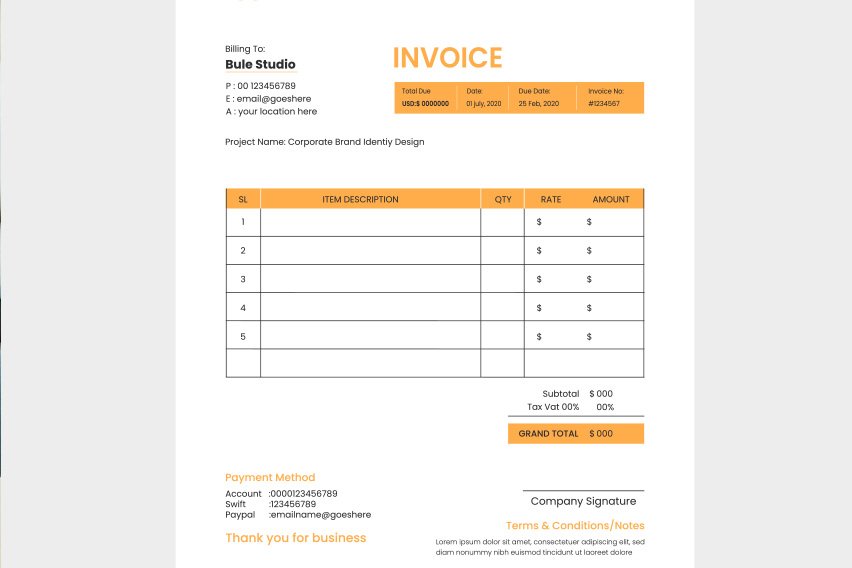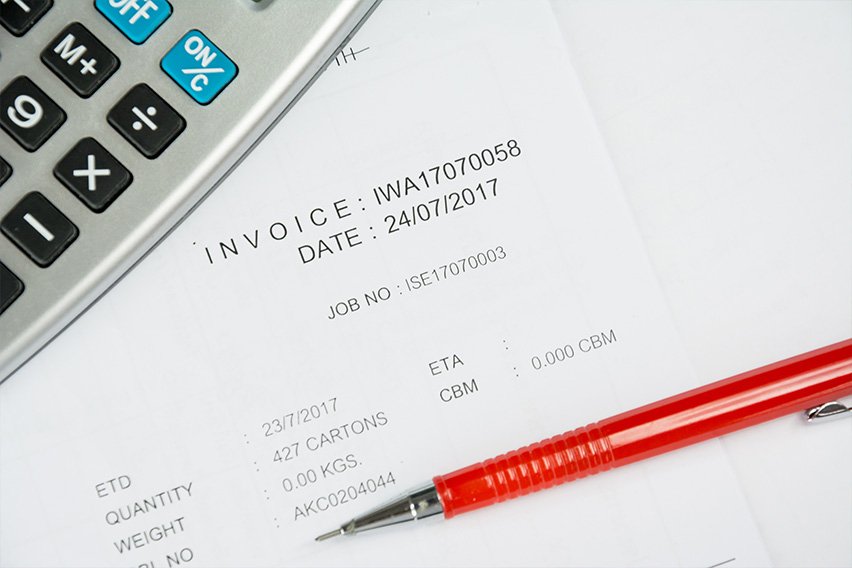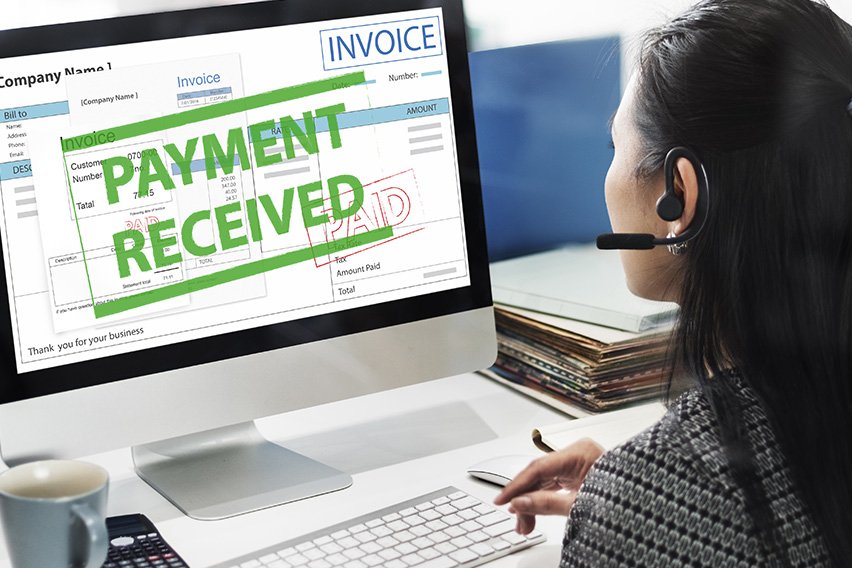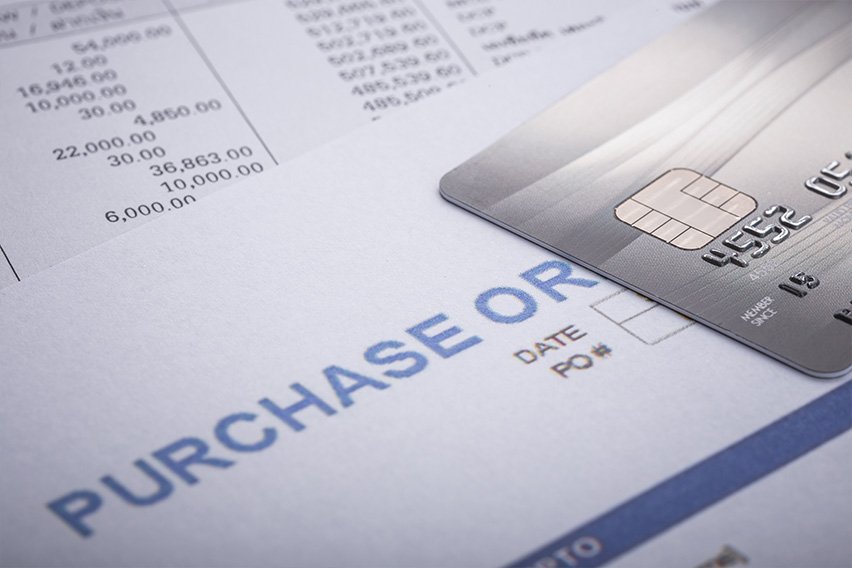Is an Invoice a Contract? How To Create a Legally Binding Contract

After a vendor provides goods or services to a customer, they’ll send out an invoice to request payment for those services rendered. However, this invoice isn’t a contract—it’s simply a payment request from one party to the other.
Understanding the difference between an invoice and a contract is important for creating legally binding documents that protect businesses and customers. While invoices are one-sided documents, legal contracts must be agreed upon by both parties to be valid.
We’ll explore the differences between invoices and contracts and what’s required to make each valid. We’ll also look at what other documents you can include with an invoice to make it legally binding so you have everything you need for efficient and legal business transactions.
Key Takeaways
- An invoice is not a contract or a legally binding document.
- An invoice is a request for payment for goods or services rendered.
- A contract is a legal document that must be signed and agreed upon by all parties.
- For an invoice to be binding, it must be signed by the customer.
- Having a contract can help enforce an invoice if the customer does not pay.
Table of Contents
- Is an Invoice a Contract?
- What Is an Invoice?
- What Is a Contract?
- Is an Invoice a Legal Document?
- What Legal Information Can You Include in an Invoice?
- How To Create a Legally Binding Contract
- What Documents Will Make an Invoice Binding?
- What are the Key Elements of a Legal Contract?
- Can a Text Message be a Legally Binding Contract?
- Are Handwritten Contracts Legally Binding?
- Conclusion
- Frequently Asked Questions
Is an Invoice a Contract?
No, an invoice isn’t a contract. The primary difference between invoices and contracts is that invoices are one-sided, whereas both parties must agree upon contracts.
Invoices record a transaction between the 2 parties, usually for goods or services provided by a business to a customer. It does not serve as a legally binding document if the receiving party doesn’t sign or agree to the invoice.
In contrast, both parties must sign a contract for it to be valid. If both parties don’t agree to the contract, and if any terms or conditions are unfulfilled, the contract is not valid.

What Is an Invoice?
An invoice is a document requesting payment for goods or services rendered. It usually includes an itemized list of everything the business provided to the customer, as well as all the associated costs.
In addition to services and costs, invoices also include payment terms for any discounts or due date. An invoice is usually sent shortly after goods or services are provided to collect the payment from the customer. The sender may also outline which payment methods they accept, like e-transfer, credit card, or check.
What Is a Contract?
A contract is a legal agreement between two parties. It outlines certain terms and conditions that need to be met, and the contract isn’t binding until those terms and conditions are fulfilled. Both parties need to agree to all terms before a contract can be legally binding.
Contracts typically detail what is expected from two or more parties. For example, a sales contract might say that one party agrees to provide certain goods within a set time frame. In return, the other party also agrees to pay a set amount within a set time frame. If both parties agree to this and the first party provides the goods within the correct time frame, the second party is bound by the contract to provide compensation.
Is an Invoice a Legal Document?
An invoice is not a legal document. Since an invoice is a one-sided document that both sides might not agree to, invoices and such documents can’t be legally binding on their own.
The primary reason that invoices are not legal documents is that they leave too much room for potential manipulation. For example, a vendor could add extra charges that the customer was unaware of, or they could change the price of certain goods after the goods were delivered. More commonly, smaller charges like shipping fees or changes in the price of materials can affect the total price of a good or service, which can come as a surprise to the customer. Since the invoice isn’t a legal document, the vendor cannot force the customer to pay these charges.
To avoid problems with invoice compensation, most businesses and clients usually create a contract before providing the goods and services. This is often accompanied by an estimate for the goods and services. If both parties agree to the contract, they then have a legal recourse should either party fail to fulfill their agreed-upon obligations.
What Makes Invoices Legal?
An invoice issued only becomes legal once both parties agree to it. It then becomes a legal debt and the customer is required to pay it.
It’s important to pay careful attention to all charges and wording on an invoice before agreeing to it. Take note of the payment schedule and any additional elements like late fees or interest charges. In most cases, the invoice should be the same as what was agreed upon beforehand in the contract or purchase order.
What Legal Information Can You Include in an Invoice?
In order to be valid, an invoice needs to include the following information:
- Business information including business name and address
- Contact information like phone number and email
- Customer information including name and address
- An itemized list of all goods and services to be rendered
- Total price to be charged
- Any taxes and additional charges
- Invoice number
- Invoice date
- Invoice due date
- Preferred payment method
- Payment terms which could also include discounts for early payment
How To Create a Legally Binding Contract
Invoices can’t serve as legally binding documents on their own, but small businesses and freelancers can create legally binding contracts to hold their clients accountable according to the payment terms provided by the contract.
To be considered legally valid, a contract only needs to include two important elements, according to the Small Business Administration. These are the two requirements that must be met for a contract to act as a legal document:
- All parties involved must agree to an offer that is made by one party and accepted by another.
- Something of value must be exchanged for something else of value, which can include goods, services and cash.
So, for instance, if you’re a freelance copywriter, your legally binding contract would require that you reach an agreement accepted by your client that you will provide copywriting services to your client and in exchange, they will pay you an agreed upon sum of cash.
What Documents Will Make an Invoice Binding?
A contract that outlines the full scope of terms and conditions for the goods and services rendered can make an invoice binding. A sales order that the customer has confirmed can do the same thing—what’s important is that you have a document that both parties have agreed to.
In most cases, your invoice will repeat what was agreed to in the contract or the order confirmation. There may be some small changes on the invoice—for example, the price of a material may have increased over the course of a project. However, if your contract outlines that the customer agrees to pay for increases within a certain scope, this can ensure the invoice is binding.
What matters is that the invoice does not contain anything that wasn’t already agreed to in a contract or order confirmation. If it does contain new information, the customer may still agree to pay it, but you won’t have a legal recourse if they disagree.
What Are the Key Elements of a Legal Contract?
The five key elements that need to be present for a contract to have legal force and be considered legally binding are:
- An offer
- Acceptance
- Consideration
- Mutuality of obligation
- Competency and capacity
If the above elements are included in a contract, it can be considered a legally binding agreement.
Can a Text Message Be a Legally Binding Contract?
Even agreements that may seem casual, like those outlined in text messages and emails, can act as legally binding contracts. Contrary to popular belief, a business owner or client does not need to formally sign a document for the agreement to be a legally enforceable document. An agreement made through text message, even if the language is informal, can still serve as a contract between the two parties in the eyes of the law.
Are Handwritten Contracts Legally Binding?
A handwritten contract can be legally binding if the document details specific clauses of the contract and both parties sign off that they agree to the terms of the contract. Although handwritten contracts can be legally binding, formal, typed contracts are the norm for business agreements and your small business administration should create formal contracts as part of its common practices.

Conclusion
Understanding the difference between an invoice and a contract is key to establishing valid business practices. An invoice is a payment request, while a contract is a binding agreement between 2 or more parties. It’s a good idea to establish a contract with clients before doing a job so you can support your invoice and collect payment.
FreshBooks invoicing software offers a quick and easy way to create professional invoices. Explore invoice templates for different industries, generate invoices in a few clicks, and accept payments through secure software. Try FreshBooks free to streamline your invoicing process today.
FAQs About Is an Invoice a Contract
Learn more about the importance of signed invoices, fighting an invoice, and invoicing without contracts with frequently asked questions about invoicing.
Do invoices hold up in court?
No, an invoice will not usually hold up in court. An invoice is simply a request for payment, but it’s not a legal document and therefore not legally binding. You may be able to legally enforce an invoice if you also have a valid contract.
Does an invoice need to be signed?
An invoice doesn’t need to be signed for a customer to pay it. However, having a signed invoice can help with enforcement if a dispute arises. An invoice becomes binding when both parties agree to it, so having an invoice that is signed by the customer can demonstrate that agreement.
How do you fight an invoice?
The best way to fight an invoice is to respond within the payment period with clear documentation of the basis for the dispute. For example, this could include pictures of unsatisfactory work or defective products. If you have a contract, you can include this as legal backing outlining the promised delivery.
Can you be sued for not paying an invoice?
If you don’t pay an invoice, the vendor may choose to sue. Their likelihood of success will depend upon the grounds for non-payment—if you have proof of unmet payment terms, you may win. However, if you signed the invoice or a contract and did not pay, they will have legal backing.
Can you send an invoice without a contract?
You can send an invoice without a contract, but you will not be protected if the customer chooses not to pay. Invoices alone are not legally binding documents—to be legally binding, the customer must sign the invoice or you must have a contract.
About the author
Jami Gong is a Chartered Professional Account and Financial System Consultant. She holds a Masters Degree in Professional Accounting from the University of New South Wales. Her areas of expertise include accounting system and enterprise resource planning implementations, as well as accounting business process improvement and workflow design. Jami has collaborated with clients large and small in the technology, financial, and post-secondary fields.
RELATED ARTICLES


 How to Make an Invoice in Word (with Free Template)
How to Make an Invoice in Word (with Free Template) Invoice Number: What It Is and How To Generate One
Invoice Number: What It Is and How To Generate One How to Pay an Invoice in 5 Easy Steps
How to Pay an Invoice in 5 Easy Steps What Is a P.O. Number on an Invoice and How to Use It
What Is a P.O. Number on an Invoice and How to Use It Net 30 : What Is It and How Does It Work?
Net 30 : What Is It and How Does It Work? How to Get a Client to Pay an Invoice: 8 Effective Tips
How to Get a Client to Pay an Invoice: 8 Effective Tips